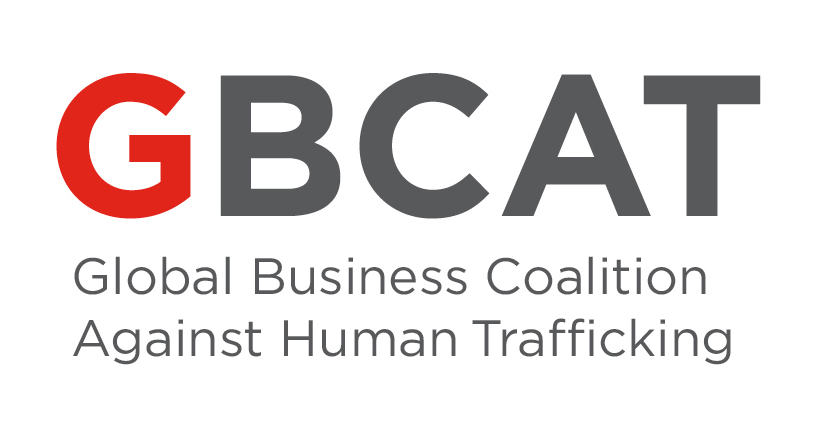James Stewart and Jean Arthur in Mr. Smith Goes to Washington.
By Mark P. Lagon
The classic movie “Mr. Smith Goes to Washington” is about a man who speaks truth to power in the morass of national politics—even as his voice weakens. Well, another Mr. Smith is leaving Washington: Lamar Smith of Texas is retiring after three decades in Congress. His example offers lessons about what corporations, citizens, and public leaders must understand about human trafficking.
As a Senate Foreign Relations Committee staffer assigned to help rationalize Senate and House versions of the original Trafficking Victims Protection Act (TVPA) of 2000 in conference committee, I can confirm that its architects were colorful. Christian conservative Senator Sam Brownback had once washed the feet of a departing congressional staffer. Congressman Sam Gejdenson chomped on unlit cigars during conferencing sessions. Paul Wellstone was a stand-up guy on the left end of the Senate—that is, he was always standing and pacing, because of a bad back. Like much of the other most consequential human rights legislation since the Reagan Administration, the bill was primarily authored by Chris Smith of New Jersey, personally and relentlessly insisting on details like country tier rankings and sanctions in talks with Executive Branch lawyers—a marvel to watch.
Back to the other Smith. Colorful too, Lamar Smith was important not as an ardent backer of the TVPA 19 years ago, but as a skeptic. As the then Judiciary Subcommittee Chair for Immigration, Smith was convinced undocumented migrants would game the immigration system if humanitarian visas were offered, fraudulently claiming they were victims. He insisted on a cap of 5,000 “T” visas per year in the final legislation. The “T” visa is only eligible to victims of human trafficking who are willing to assist law enforcement in an investigation or prosecution of an act of trafficking.
Well, the cap has never been an obstacle to “T” visas being issued, partly because of minimal false claims by undocumented persons, but also because survivors are reluctant to come forward for fear of being deemed criminals.
What are the lessons now that Mr. Smith goes from Washington?
First, humanitarian visas are not being issued hand-over-fist in the U.S. or any country, in large part because authorities look for and find sex trafficking more readily than labor trafficking. The 2018 annual State Department Trafficking in Persons Report indicates that only 23.8 percent of the 100,409 trafficking victims identified around the world in 2017 were exploited primarily for labor rather than as sex providers. Yet international experts suggest that in fact, rather than representing that one-quarter proportion, labor trafficking accounts for at least three quarters of trafficking incidents. Furthermore, labor traffickers enjoy impunity: only 4.8 percent of the 17,880 prosecutions and only 4.7 percent of the 7,045 convictions of traffickers were related primarily to labor exploitation. The breakdown of these statistics into labor versus sex trafficking was instituted over ten years ago when I oversaw the report as Ambassador. Since then, not enough progress has been made on redressing the imbalance.
Second, Lamar Smith’s original skepticism illustrates that confusion—sometimes willfully sewn confusion—obscures the relationship between undocumented status and trafficking. Some undocumented migrants are subjected to sufficient force, fraud, and coercion (the tests under US law and the global treaty on trafficking) to be deemed victims of human trafficking. Moreover, trafficking victims need not be undocumented, as shown by guest workers coming to the Arabian Gulf or to the United States. Invective about “caravans” and conflation of human smuggling (illicit migration) with human trafficking (gross exploitation) by politicians is rife today.
Third, new political leaders must step up to preserve the consensus and understanding of human trafficking. Senator Bob Corker of Tennessee, also retiring, announced that Senator Rob Portman of Ohio would step into his shoes as the leading Republican voice in the Senate on trafficking. Democrat Amy Klobuchar, as a successor to Paul Wellstone from Minnesota in the Senate, is just the sort of sober former prosecutor committed to the issue that is needed. And despite the paucity of Senate confirmations and the larger political chaos and rancor explaining it, the newly-confirmed Ambassador-At-Large, John Richmond, is supremely qualified in the anti-trafficking field as a prosecutor and trainer of law enforcement globally, and is a respected player among faith-based and secular non-profits.
The confusion and acrimonious nature of today’s politics means that fighting modern slavery should not be left only to politicians or even worthy nonprofits. Business must continue to step up. Maybe some of our prominent political leaders have forgotten that wise foreign policy is based on both interests and values. But business hasn’t. Fighting trafficking is both good and good business: it minimizes reputational harm, inspires employees with a culture of decency, and cultivates the well-being of communities of workers and consumers. The Global Business Coalition Against Human Trafficking (GBCAT) stands ready to help business take up this challenge by:
(1) providing navigation and guidance on human trafficking tools and organizations;
(2) enhancing the capabilities of small-and medium-sized companies in high-risk supply chains to address and reduce trafficking in business operations; and
(3) supporting trafficking survivors to reclaim their dignity through job skills training and access to decent work opportunities in business.
As he retires, Mr. Smith leaves us with three key lessons. Look for incidents of both sex and labor trafficking. Don’t let hot debates on migration cloud understanding of trafficking as slavery-like exploitation. And business has an essential role to play—in addition to political leaders—in leading the effort to stamp out modern slavery.
***
About the Author
Mark P. Lagon is Chief Policy Officer at Friends of the Global Fight and Distinguished Senior Scholar at Georgetown University’s Walsh School of Foreign Service. He is a Co-Founder and Steering Group member of the Global Business Coalition Against Trafficking (GBCAT). He served as Ambassador-At-Large to Combat Trafficking in Person under President George W. Bush, and as CEO of Polaris.


